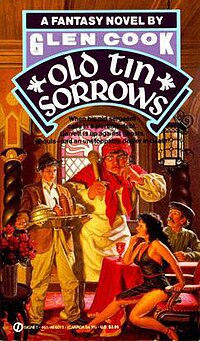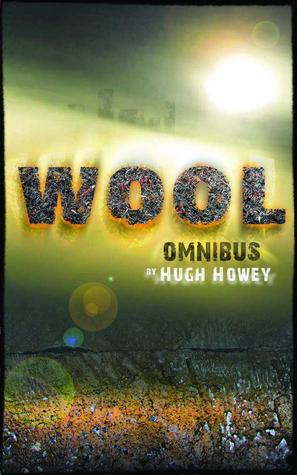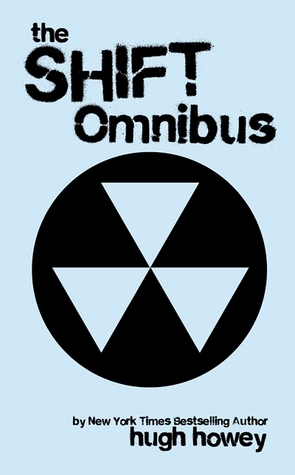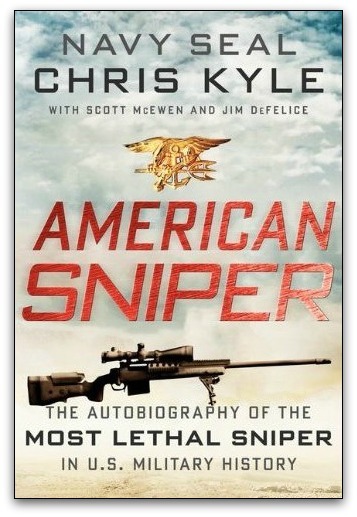It seems as though it has been forever since I posted in one of these topics. I haven't read as much as I would have liked thanks to my job, but I have still managed to do a good deal of reading since I last posted in February:
The Rhinoceros Who Quoted Nietzsche and Other Odd Acquaintances, by Peter S. Beagle
Unearthing the Dragon: The Great Feathered Dinosaur Discovery, by Mark A. Norell
A Canticle for Liebowitz, by Walter M. Miller, Jr.
Maria Callas: A Musical Biography, by Robert Arthur Levine
The Lord of the Rings, by J.R.R. Tolkien
"Why Are All the Black Kids Sitting Together in the Cafeteria?": A Psychologist Explains the Formation of Racial Identity, by Beverly Daniel Tatum
The Silmarillion, by J.R.R. Tolkien
Oddly Normal: One Family's Struggle to Help Their Teenage Son Come to Terms with His Sexuality, by John R. Schwartz
Sharaz-De, by Sergio Toppi
Miles, Mystery & Mayhem
Captain America: Winter Soldier Ultimate Collection, by Ed Brubaker
X-Men: Days of Future Past, by Chris Claremont
Hulk: WWH - World War Hulk, by Greg Pak
Reading Without Limits: A Practical Step-by-Step Guide for Helping Kids Become Lifelong Readers, by Maddie Witter
The Books of Magic, by Neil Gaiman
Hyperion, by Dan Simmons
Madame Bovary, by Gustave Flaubert
Everyday Antiracism: Getting Real About Race in School, by Mica Pollock
The Bluest Eye, by Toni Morrison
What's Wrong with Fat?, by Abigail C. Saguy
The Girl Who Fell Beneath Fairyland and Led the Revels There (Fairyland, #2), by Catherynne M. Valente
What's Wrong with Homosexuality?, by John Corvino
The Genius of Dogs: How Dogs are Smarter than You Think, by Brian Hare
Moneyball: The Art of Winning an Unfair Game, by Michael Lewis
The Blind Side: Evolution of a Game, by Michael Lewis
A History of Opera, by Carolyn Abbate
The Glamour of Gramar: A Guide to the Magic and Mystery of Practical English
The Reformation: A History, by Diarmaid MacCulloch
I'm not sure where I ought to start, so I suppose I'll just make it simple for myself and start with the oldest. I will naturally be skipping some of them, though!
I really enjoyed The Rhinoceros Who Quoted Nietzsche and Other Odd Acquaintances. I had expected to enjoy it; Peter S. Beagle is one of my favorite fantasy authors, after all. He has a very distinctive authorial voice that is instantly recognizable. He's not like, say, Gene Wolfe where he can seem completely different from book to book. With Beagle it's almost as if he's tapping into this Ur-Fairytale Storyteller voice. He has this wonderfully whimsical tone to his voice.
In this collection of short stories this tone occasionally created a bit of weirdness. There are a few stories that while not "horror stories" per se, do have horrifically violent elements in them. Despite this, my emotional response to the prose was almost detached disbelief. I don't know if it was intentional, but I actually liked the effect. It made what was happening - the supernatural happening in the real world - feel almost disembodied and surreal.
Rhinoceros also included several essays he wrote over the years. I was less enamored with these, and they honestly dragged my rating down. Read them if you are curious, but I recommend reading the short stories and skipping the essays.
Unearthing the Dragon was a rather boring book about a very interesting subject. I still liked it, but mostly because I learned some interesting things about the authors of one of the chapters in the far superior The Complete Dinosaur. I think my boredom was partially due to the author not being the most engaging writer, a bit too much about China and not enough about dinosaurs for my expectations, and the fact that much of it was what I already knew. Perhaps someone who hadn't recently read a gigantic book about dinosaurs it more interesting than I did.
A Canticle for Liebowitz was fantastic, though I preferred the earlier sections of the novel to what came later. I don't think that it ever became bad - or even "not great" - but I did really like the presentation of a postapocalyptic dark ages in which scientific knowledge had been lost. The book is more like a collection of novellas set in the same world with several time jumps as humanity recovers. I also learned recently that Le Guin had read him and appreciated him, and I can see why.
Why Are All the Black Kids Sitting Together in the Cafeteria? was one of those books that I've known about for years but hadn't gotten around to reading. I had always sort of wondered as a kid why it seemed like everyone segregated themselves. I wasn't sure what it meant or what led to it, and I still wasn't really sure why it occurred even as an adult. So the book was really fascinating, although the answers were in retrospect something I should have been able to think of. I also really appreciated the chapters about affirmative action and support for it; there was interesting research demonstrating clear and consistent biases towards white candidates over black candidates and consistent underrating of the abilities of black candidates especially when black candidates were particularly qualified.
Sharaz-De is a short graphic novel (novella?) that is essentially a play on the Thousand And One Nights set-up (Royal personage is going to have some woman killed, she tells stories to stay alive). The art is absolutely gorgeous and while I can't speak to real authenticity I didn't think they felt like the author was "trying too hard."
The Book of Magic has pretty art but a horrendously unlikable protagonist and a plot that exists solely as a chance to show off random arcana and rare characters. I wouldn't suggest it to anyone.
Hyperion is amazeballs and everyone should read it and I need to read Keats now.
What's Wrong with Fat? is the first book about fat from a sociological (and a bit from a medical perspective, as well) that I have read. I learned a lot about research between health, weight, and fitness, and about how framing effects our understanding of this issue. It has made subsequent GAF topics more interesting because I feel like I can better see the framing a person is approaching the issue from. This book, a few blogs, and topics on GAF have had me thinking a lot and while I wouldn't say I have changed my opinions ... I do think that it has crystallized things for me. I had similar experiences with feminism, antiracism, and transgender issues - GAF leads to arguments leads to reading stuff online leads to blogs leads to GAF leads to better informed arguments leads to books and so forth. I don't think I've mentioned before how the people I argue with actually do (perhaps inadvertently) lead me to learning a lot.
The Girl Who Fell Beneath Fairyland and Led the Revels There (Fairyland, #2) is fantastic, but everyone should read The Girl Who Circumnavigated Fairyland in a Ship of Her Own Making first since this is a sequel!
What's Wrong with Homosexuality?, by John Corvino is one of the very best books about gay rights from a morals / ethics / philosophical approach that I have read and he references my other favorite, Richard D. Mohr's The Long Arc of Justice: Lesbian and Gay Marriage, EQuality, and Rights as one of his biggest influences. They are both fantastic primers for arguments about gay rights and (I think) have as fair portrayals of anti-gay arguments as you can reasonably get. Corvino's book is lighter and more recent, though, so I would suggest starting with it.
The Genius of Dogs: How Dogs are Smarter than You Think is awesome because dogs are awesome.
A History of Opera and The Reformation: A History are both those sorts of tome-like history books that have fascinating information on their respective subjects on every page and challenge preconceptions (if you have any) and are far too much to remember so you can't think of much of anything offhand. Or at least, that is my experience. I have been trying to get into opera more, and I think more than anything else what I have read about opera has expanded my interest in opera from one that is purely vocal to one that encompasses the staging and the libretti. I read the latter on Kabouter's suggestion. I remember whether he formally suggested it, but I know it was on his Goodreads feed as something he intended to read. He hasn't read it yet, and he's the history buff so I'm not sure what gives there.
--------
Oh, and just because...
Currently reading:
The Story of the Stone, by Cao Xueqin (some 2500 page 18th century Chinese monstrosity. I love it)
Troilus and Criseyde, by George Chaucer (some 14th century Romantic poem)
Criseyde should really stop listening to her uncle; she owes Troilus nothing.






























